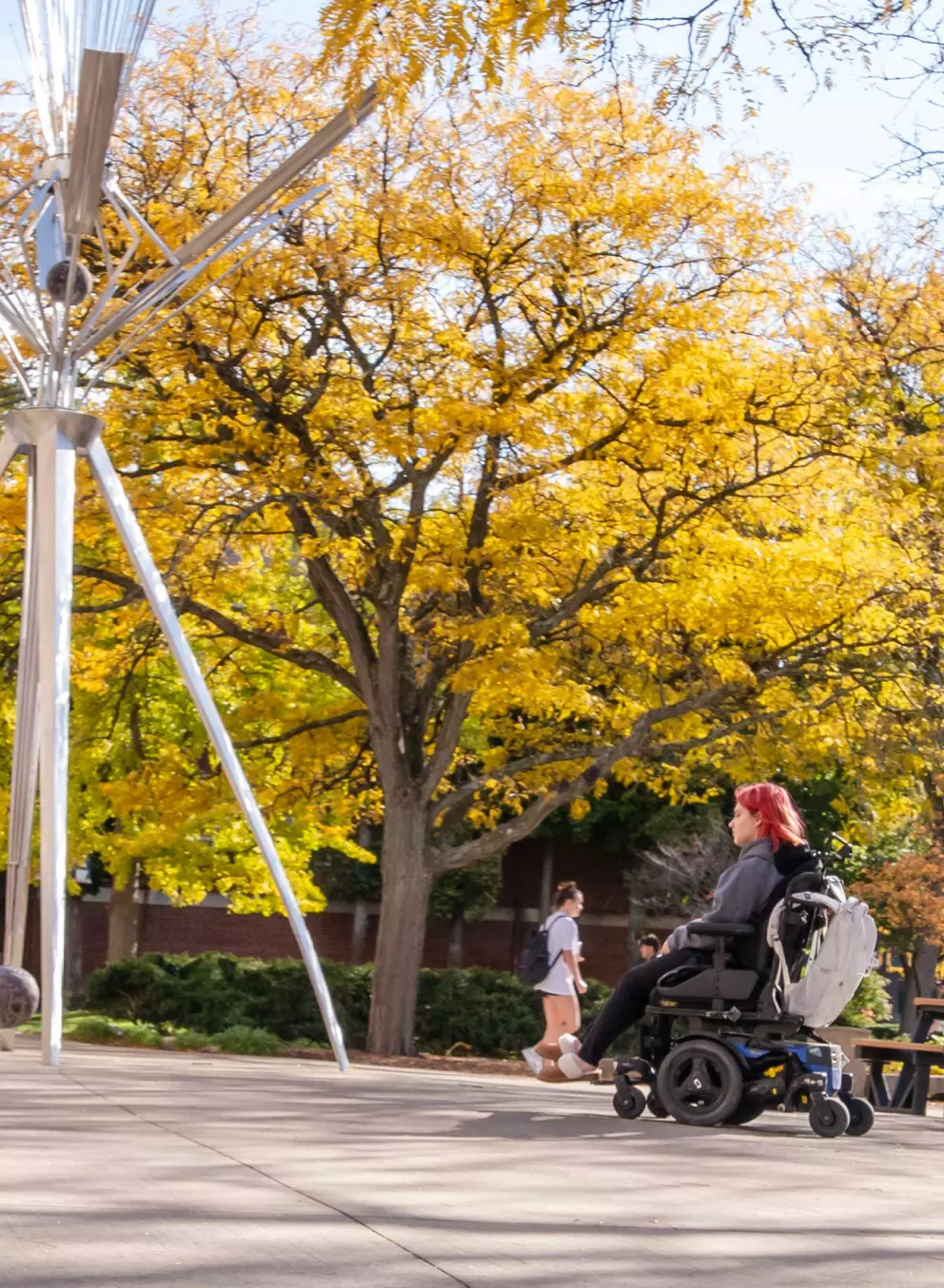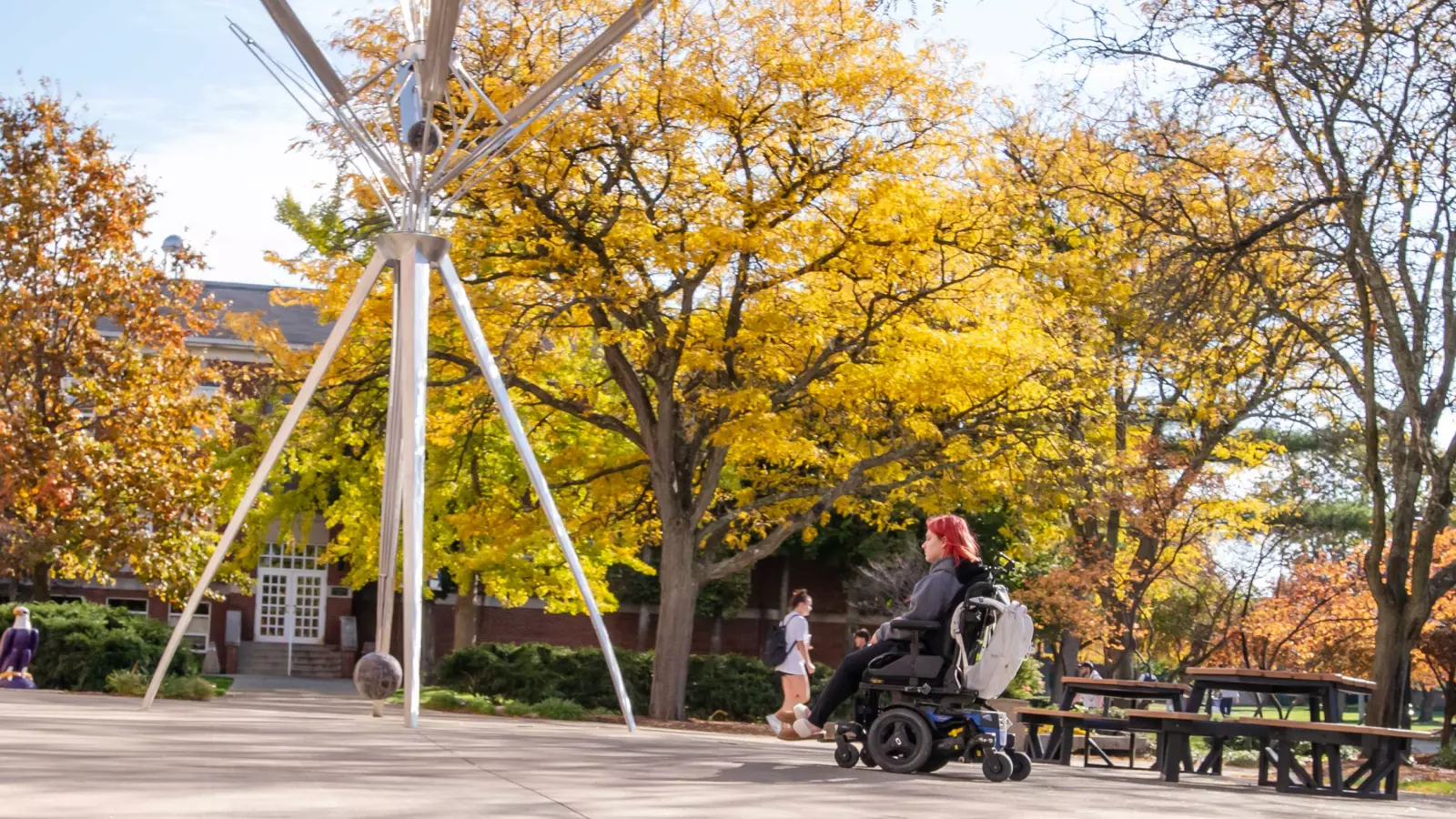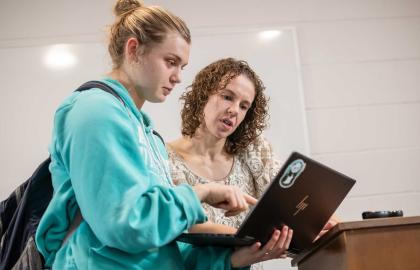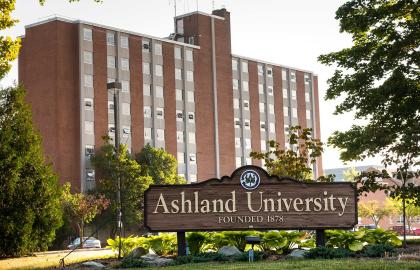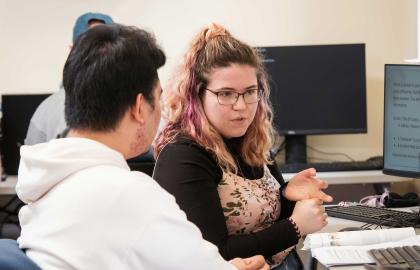Welcome to the Student Accessibility Center at AU!
We’re glad you’re here. At the Student Accessibility Center (SAC), our mission is to ensure that all qualified students have equal access to every aspect of the college experience. We’re committed to creating an inclusive, supportive environment where students can thrive both in and out of the classroom. It is a collaborative effort between the student, staff, faculty members and Student Accessibility Center to facilitate access, promote inclusion on campus and provide equal educational opportunities at Ashland University.
Our office evaluates and approves reasonable accommodations for students with a disability. According to the Americans with Disabilities Act (ADA) of 1990, a disability includes any “physical or mental impairment that substantially limits one or more major life activities.” Any student with a verified disability could include physical, psychological or learning disabilities, communicative disorders or temporary injuries (e.g. concussions, broken or sprained limbs).
To establish eligibility for services and accommodations based on a disability, students will engage in a process that includes completing an online form and making an appointment with the Director of SAC to provide further information and discuss documentation needs specific to their request. External documentation can support accommodation eligibility, but those without documentation are welcome to meet with staff to explore available support options.
Grievance Procedure: Any student who believes they have been discriminated against based on disability may seek assistance from the Student Accessibility Center to engage in an interactive process to seek resolution. Please read the Disability Discrimination Grievance Procedure to learn how to seek assistance.
Contact Information
Ohio Relay Dial 711
Student Accessibility Center Handbook
The SAC handbook is intended to provide helpful information about the services and resources available to students with disabilities—whether permanent or temporary—that significantly impact major life activities.
If you have questions about SAC’s policies or how to connect with accommodations, please reach out to our office. We’re here to support you every step of the way.
Click the icon to view the handbook in full screen mode or the icon to download it as a PDF file.
Requesting Academic Accommodations
Students who wish to request accommodations (including temporary accommodations due to injury) are encouraged to self-disclose by initiating the process and providing documentation of their disability. Upon approval, students will not be accommodated unless they provide their instructors with a letter from the Student Accessibility Center. If you are a new or current student, we are happy to talk with you anytime about what support we can offer.
Complete the online Academic Accommodations Request Form. Please be sure to include as much information as possible on the form.
Once all forms are complete, the Student Accessibility Center will contact you to set up an Intake meeting to determine accommodations depending on the disability's impact and student need and the reasonableness of the requested accommodation. You may also be asked for further documentation. Our goal is to ensure equal access to all courses and activities. You will be instructed on further steps if you are approved for accommodations.
If you have documentation from past accommodations (a recent IEP or 504 plan or other educational records from high school or another college) you can upload this on the Academic Accommodations Request Form. You can also download the Healthcare Verification Form and ask your healthcare provider to email or fax directly to Student Accessibility Center to provide disability verification. Documentation must be relevant to the requested accommodation(s). All documentation submitted to SAC is kept strictly confidential.
Note: The diagnosing professional must be a medical specialist with expertise in the area related to the student’s disability. The professional may not be related to the student.
Requesting Housing Accommodations
If you are requesting a modification to your housing arrangements as an accommodation for a disability, please follow these steps to request housing accommodations through the Student Accessibility Center.
Deadlines:
Requests for housing accommodations submitted after the deadlines are not guaranteed, as they will be subject to availability.
New students and transfer students: Submit your Housing Accommodations Request Form at least one month before the start of the Fall or Spring semester, depending on when you plan to begin.
Returning students: If you are interested in a housing accommodation or currently have an accommodation and want to maintain that accommodation next year, you must go through the renewal process. Submit your Housing Accommodations Request Form by January 31 to apply for housing accommodations for the following academic year. Accommodations need to be renewed every year; they do not roll over from year to year.
Complete the online Housing Accommodations Request Form. Please be sure to include as much information as possible on the form.
To accurately establish eligibility for services and accommodations on the basis of a disability, SAC will need sufficient information to understand how the requested housing assignment relates to the current impact of the condition. Engaging in a meeting with the SAC director will provide the opportunity to explore qualifications for a particular accommodation.
Download the Healthcare Verification Form to ensure documentation of the disability as it relates to housing needs and ask your healthcare provider to email or fax the completed form to the Student Accessibility Center. We will review reasonable requests for accommodation within the residential program.
Note: The diagnosing professional must be a medical specialist with expertise in the area related to the student’s disability. The professional may not be related to the student.
Upon receipt of all the necessary documentation, the Housing Accommodation Review Team (Residence Life Director, Director of Counseling/Heath Center, and the Student Accessibility Center) will determine whether appropriate reasonable accommodations can be made based on the submitted information. The team will review submitted applications on a regular basis.
The Office of Residence Life will notify the student in writing whether or not the accommodation can reasonably be made. This notification will be sent to the student's university email address. If the documentation which has been submitted does not contain sufficient information to determine appropriate accommodations, the student will be contacted. Students are able to meet with Student Accessibility Center to discuss the documentation, and/or can submit additional documentation for review at any time.
Other Accommodations
Dietary Accommodations
Dining Services works with Student Health Services and a Registered Dietitian to provide for specific clinical dietary needs. Students are encouraged to contact Fred Geib in Dining Services to discuss their dietary needs. Requests are reviewed and evaluated on a case-by-case basis. If you find that the dining plans offered by the university do not meet your needs due to food allergies or other medically-related dietary restrictions, you can request accommodations by completing the Dietary Accommodations Request Form.
Emotional Support Animals
Under the Fair Housing Act, students may request an Emotional Support Animal (ESA) in the residence dorm room. An ESA is an animal that an individual with a disability utilizes solely for emotional support, well-being, or comfort. Students are encouraged to review the Emotional Support Animal Policy to become familiar with the expectations and guidelines for having an ESA on campus housing.
For students requesting an ESA in housing, please email the SAC director at jdonatin@ashland.edu.
Service Animals
A service animal is any dog that is individually trained to do work or perform tasks for the benefit of an individual with a disability. Service Animals are generally permitted to accompany their handlers in any building or public space where their handlers are permitted. If you have questions or would like assistance planning for a Service Animal at Ashland University, or have a concern about your treatment and access when accompanied by your Service Animal, please contact the Student Accessibility Center.
Events
If you need accommodations to fully participate in an AU event, please contact the Student Accessibility Center at au-sac@ashland.edu in advance.
